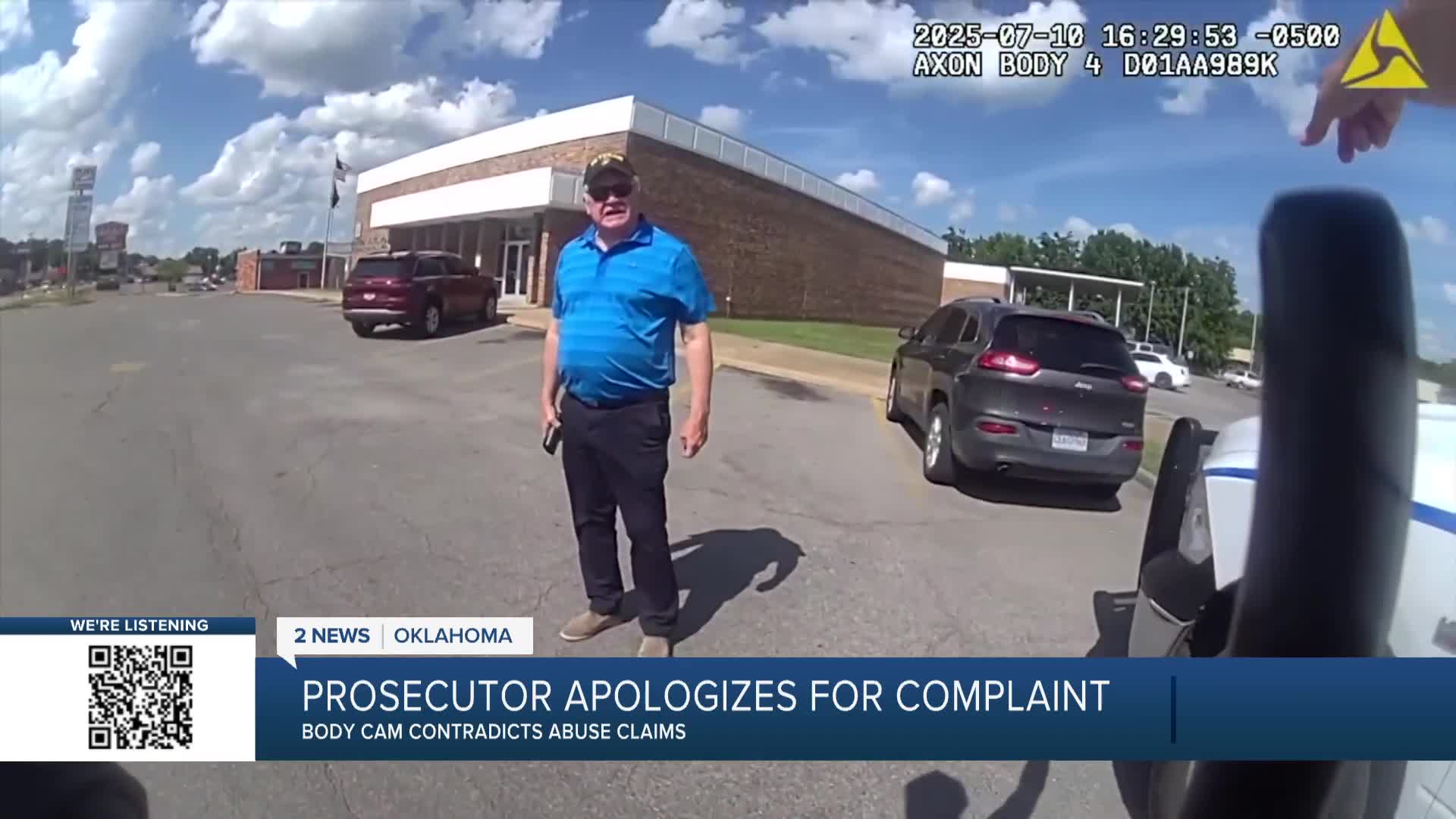TAHLEQUAH, Okla. — A top prosecutor in Cherokee County is apologizing for bringing in a mayor, a police chief, and his boss, a district attorney, to review the mental stability of an officer during a recent traffic stop.
Assistant District Attorney Doug Dry claimed Tahlequah Police Department Lieutenant Bryan Qualls abused his power.
WATCH: Asst. DA demands review of Tahlequah officer’s mental health after traffic stop
2News obtained body camera footage that reveals that claim is arguably the other way around.
During a recent traffic stop, Lt. Qualls pulled over a driver for alleged speeding in front of the post office in Tahlequah. It is later revealed Dry is attempting to get to the post office before it closes.
The body camera footage begins as Qualls is sitting in his patrol car, asking someone to “get back in the car.”
He repeats the phrase several times, until Dry comes into view of the camera and towards Qualls. Qualls then stands up and moves toward Dry.
“I’m going to take you to jail, get in the car like I asked you to,” said Qualls.
“I’m the Assistant DA and I don’t know why you’re treating me this way, I didn’t do anything,” said Dry.
“Then listen to me, and get back in the car,” said Qualls.
The two continue to debate the legality Dry continuing to stay out of the vehicle. Qualls says several times he could arrest him for obstruction.
Eventually, Dry gets back in the car. The exchange is about one minute long. The officer issues the driver a warning for speeding.
After the incident, in a four-and-a-half page letter, Dry demands that Tahlequah Police Chief Nate King, District 27 District Attorney Jack Thorp review the officer’s “mental, emotional, psychological suitability and well-being.” The Tahlequah Mayor, Suzanne Meyers, was also cc’ed on the letter. He also questioned the officer’s behavior, and used words like “hostile” and “aggressive” to describe it.
Dry wrote he was concerned about the officer’s conduct with others, based on the way Dry was dressed.
“If he didn’t recognize me, being dressed in slacks, polo shirt and wearing a Marine Veteran ballcap, I would have assumed he knew I posed no threat to him,” wrote Dry.
Chief King reviewed the video and deemed the letter unwarranted. We spoke to him about the incident. Lt. Qualls did not wish to do an interview about it.
“I did not agree with the words used and the magnitude of the language,” said King. “It was a serious complaint that can not be taken lightly.”
Thorp sent 2 News a timeline of events in an email. He said after reviewing the footage, he issued an apology to Qualls.
Dry also wrote a lengthy apology, but in the apology, he included that he felt his perceptions of events were not recorded. He believed the officer did not record the exchange until after his “two loud statements.”
“I do not believe there was any nefarious purpose for the non-recording of the statements,” wrote Dry. “It appears his decision to activate the recording came after he made them.”
In the same letter, Dry formally withdrew his complaint.
Despite the withdrawal, it will stay on Qualls’ record.
“I hate that for Lieutenant Qualls and the Tahlequah Police Department because we are going to have to answer questions about this---or potentially have to—for years to come,” said King.
The DA, the police chief, and, now, Mr. Dry, all say the officer was correct: that a passenger refusing to comply with an officer’s orders could constitute obstruction.
“Stay in your car. Give your license. Give your registration, it will avoid a lot of problems,” said King. “No matter who you are.”
From DA Thorp:
For public clarity, Lt. Qualls was correct in his application of the law regarding the seizure of passengers during a traffic stop. The United States Supreme Court in Brendlin v. California, 551 U.S. 249 (2007), and the Oklahoma Court of Criminal Appeals in State v. Paul, 223 P.3d 975 (2009), have held that all passengers are lawfully detained during a traffic stop. Refusal to comply with a lawful order from law enforcement may constitute a violation of 21 O.S. § 540 (Obstruction).
Stay in touch with us anytime, anywhere --
- Download our free app for Apple, Android and Kindle devices.
- Sign up for daily newsletters emailed to you
- Like us on Facebook
- Follow us on Instagram
- Watch LIVE 24/7 on YouTube





